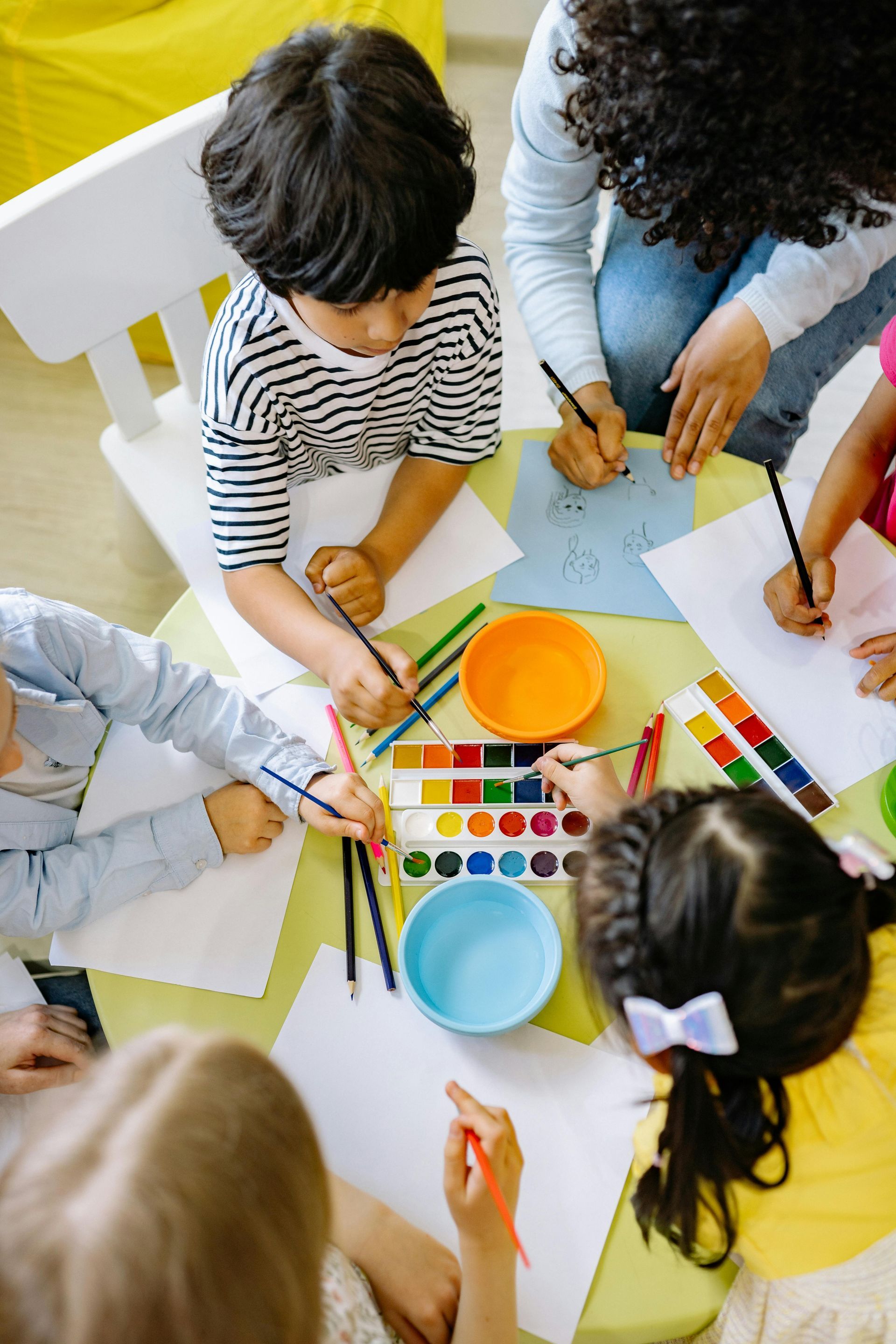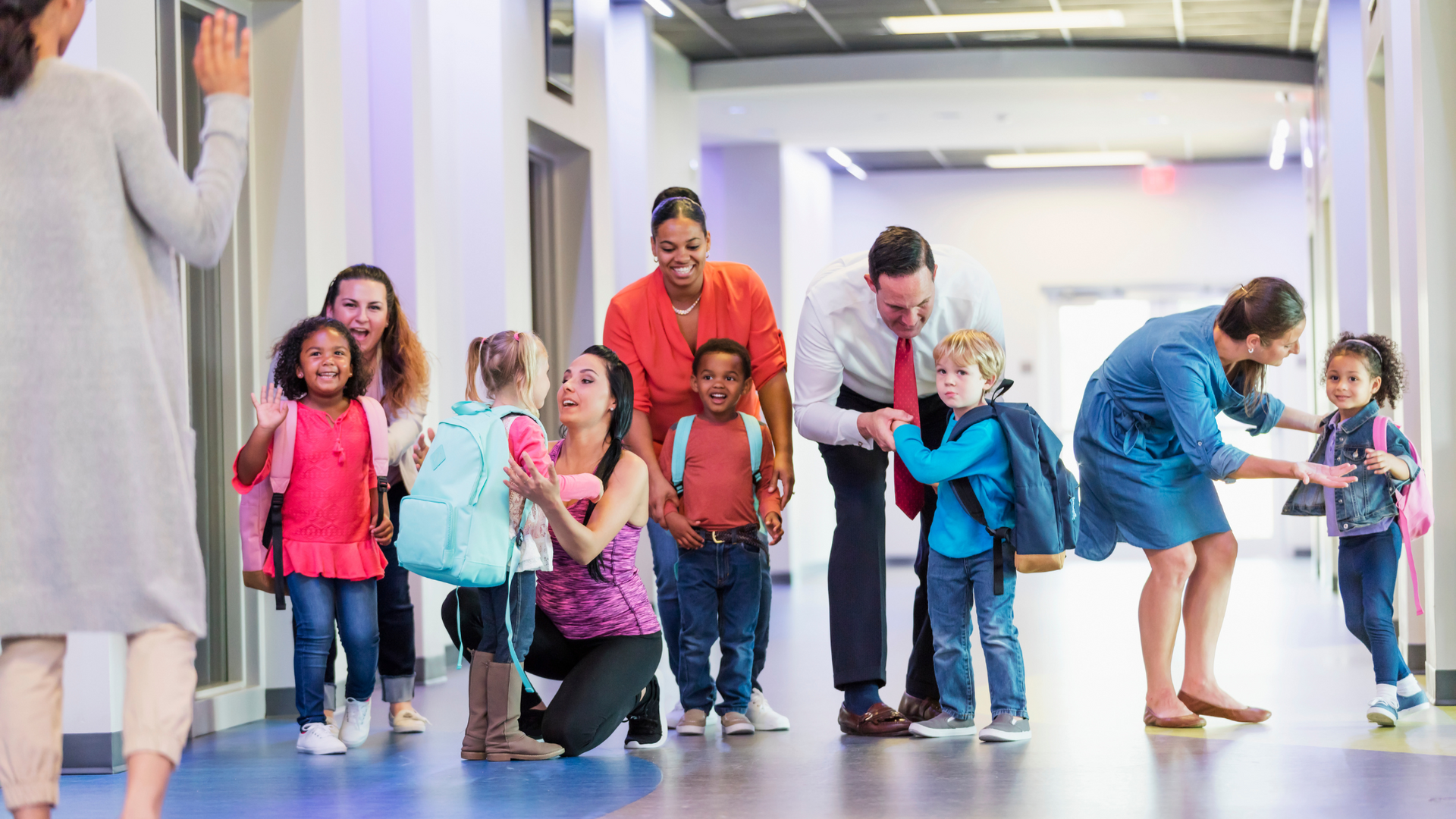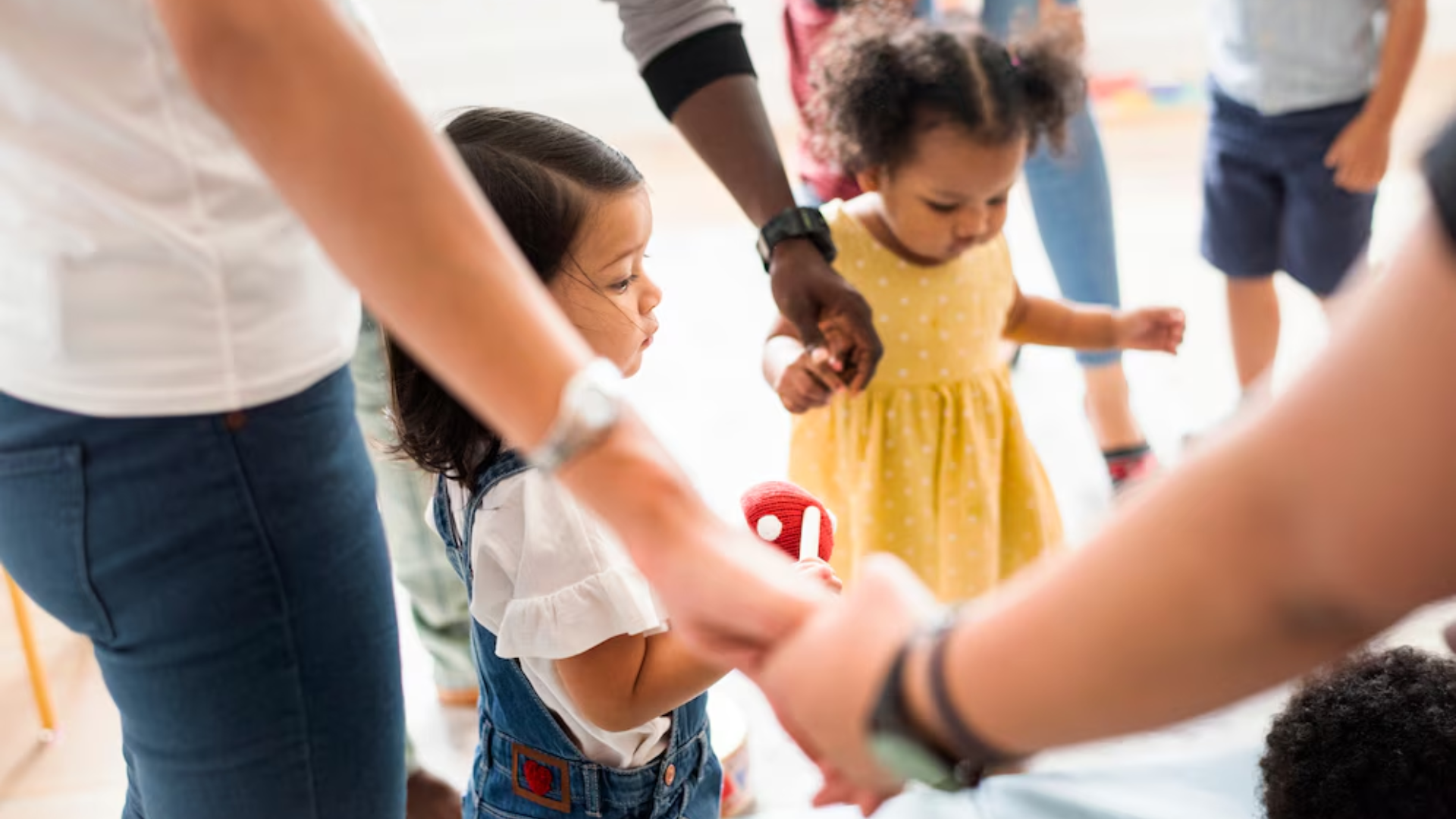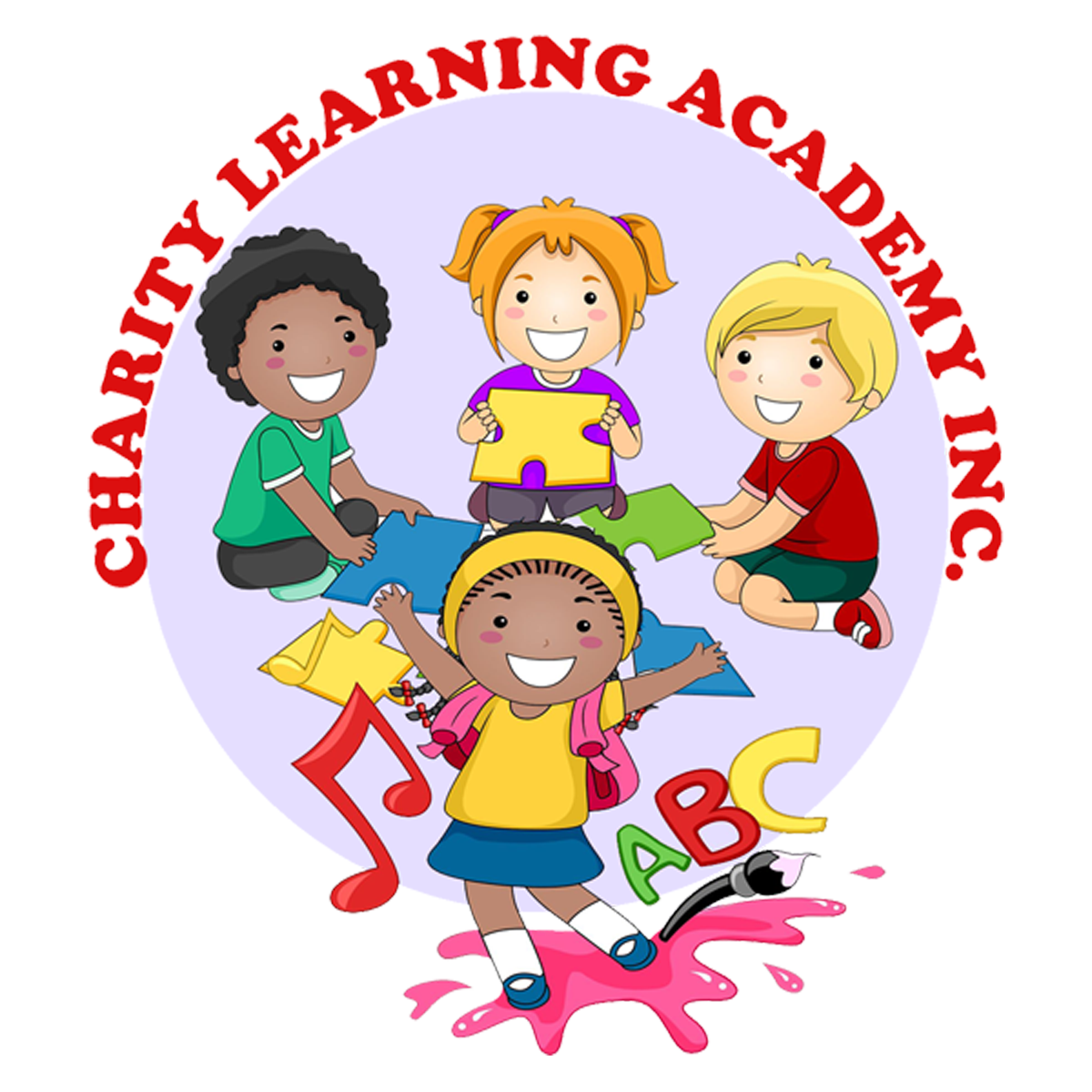Creating Lifelong Learners Through Early Childhood Education

Early childhood education plays a pivotal role in shaping a child’s future, laying the groundwork for not only academic success but also the development of lifelong learning skills. The first few years of a child’s life are critical for brain development and learning, making this period an ideal time to instill the love of learning that will last a lifetime. At our preschool, we are dedicated to creating an environment where curiosity is encouraged, exploration is celebrated, and a passion for learning is nurtured. In this article, we’ll explore how early childhood education fosters lifelong learning and why it is essential for your child's growth and development.
The Importance of Early Childhood Education in Lifelong Learning
The early years are a critical period for a child’s brain development, with rapid changes occurring that lay the foundation for future cognitive, emotional, and social growth. Research has shown that children who receive high-quality early education are more likely to succeed in school and beyond. Early childhood education offers children the opportunity to build essential skills such as problem solving, critical thinking, communication, and collaboration all of which are key to becoming lifelong learners.
Lifelong learning refers to the continuous, voluntary, and self-motivated pursuit of knowledge throughout an individual’s life. By fostering a love of learning at an early age, children are more likely to develop an intrinsic desire to explore new topics, seek out new experiences, and continually expand their understanding of the world. Early childhood education programs provide the first building blocks for this lifelong journey.
Encouraging Curiosity and Exploration
At our preschool, we understand that curiosity is the natural driver of learning. Children are born with an innate sense of wonder and a desire to explore the world around them. Our programs are designed to capitalize on this curiosity by offering rich, hands-on learning experiences that spark children’s interest and encourage them to ask questions, experiment, and explore. Whether through play-based learning, nature exploration, or interactive activities, we provide an environment where children can engage in the learning process actively and creatively.
Encouraging children to ask questions, make discoveries, and solve problems on their own fosters the development of critical thinking skills. Children learn that their ideas are valued, which in turn motivates them to continue learning, asking questions, and seeking answers. This approach not only nurtures their intellectual development but also strengthens their confidence in their ability to learn independently.
Promoting Emotional and Social Development
Lifelong learning is not just about acquiring academic knowledge; it is also about developing the social and emotional skills necessary to thrive in life. Early childhood education offers children the opportunity to develop these skills in a safe and supportive environment. Through group activities, cooperative play, and interactions with teachers and peers, children learn how to communicate, share, collaborate, and resolve conflicts.
These social skills are essential for building positive relationships and working effectively with others throughout life. They also contribute to emotional intelligence, helping children develop self-awareness, empathy, and the ability to regulate their emotions. Emotional and social development is foundational for becoming a lifelong learner, as it allows children to approach new challenges with resilience and a positive mindset.
Moreover, emotional intelligence enables children to understand and express their feelings in a healthy manner, which is crucial as they encounter various situations and challenges throughout their lives. By providing a nurturing environment that emphasizes emotional growth, we help children build resilience and adaptability, which are vital for personal development and lifelong learning.
Building Strong Foundations for Future Learning
A strong foundation in early childhood education provides children with the skills and knowledge they need to succeed in later years. Our preschool curriculum focuses on developing key cognitive skills, such as problem-solving, language development, and basic math concepts. These foundational skills serve as building blocks for future academic learning and set children on a path toward success in school.
However, the benefits of early childhood education extend beyond academics. The self-regulation skills children develop, such as the ability to focus, manage impulses, and follow instructions, are equally important for success in future learning environments. These skills help children engage more effectively in learning activities and provide them with the tools they need to stay motivated and committed to their education throughout their lives.
In addition, early childhood education fosters a love of books and reading, which serves as the foundation for literacy skills. Reading to children at an early age, exposing them to new words, and encouraging them to engage with stories helps develop their vocabulary, comprehension skills, and cognitive abilities. These early literacy skills are essential for future academic success and foster a lifelong love of learning.
Encouraging a Growth Mindset
One of the most powerful ways to create lifelong learners is by fostering a growth mindset. A growth mindset is the belief that intelligence and abilities can be developed through effort, persistence, and learning from mistakes. At our preschool, we emphasize the importance of effort and perseverance, encouraging children to embrace challenges as opportunities for growth rather than obstacles to be avoided.
By praising children for their hard work, creativity, and problem-solving abilities, we help them develop a positive attitude toward learning. They learn that it is okay to make mistakes and that failure is simply a stepping stone toward success. This mindset encourages children to take risks, try new things, and view challenges as opportunities to learn and grow, all of which are crucial for becoming lifelong learners.
The growth mindset also nurtures resilience in children. They begin to understand that learning is a process and that overcoming difficulties is part of the journey. With this mindset, children are more likely to approach future challenges with confidence, determination, and a willingness to learn from their experiences.
Fostering Independence and Responsibility
Independence is a key component of lifelong learning. In our preschool, we provide children with opportunities to make choices, solve problems independently, and take responsibility for their actions. This helps children develop a sense of agency and ownership over their learning. They learn to trust their instincts, make decisions, and reflect on the outcomes of their choices.
By promoting independence, we help children build the confidence and self-reliance they need to continue learning throughout their lives. As they grow, they learn to take initiative in their own education, seek out new opportunities for learning, and take responsibility for their personal and academic growth.
Furthermore, fostering independence in young children helps them build time-management skills and self-discipline. These skills are essential for navigating the more complex learning environments they will encounter in the future, such as school and eventually the workplace. The ability to manage one’s time, stay organized, and prioritize tasks is an invaluable skill for lifelong learning.
Incorporating Play Based Learning
Play-based learning is a cornerstone of our preschool programs because it allows children to learn in a fun, engaging, and natural way. Through play, children develop important cognitive, social, and emotional skills that contribute to their overall growth and development. Play provides opportunities for children to experiment, take risks, and explore new ideas in a low-pressure environment, fostering creativity and innovation.
At the same time, play-based learning encourages collaboration and teamwork, as children often engage in group play activities. This helps children develop social skills such as communication, cooperation, and problem-solving, which are essential for lifelong learning. Play allows children to practice and refine these skills in real-world contexts, preparing them for future success in both school and life.
In addition, play-based learning supports the development of executive functions, such as working memory, flexible thinking, and self-control. These functions are crucial for academic achievement and lifelong learning, as they enable children to plan, focus, and adapt to changing circumstances. By engaging in play-based activities that challenge these skills, children are better equipped to succeed in future educational settings.
Partnering with Families for Lifelong Learning
We recognize that learning extends beyond the classroom and that families play a crucial role in supporting their child’s educational journey. At our preschool, we partner with families to ensure that learning continues at home and that children are encouraged to explore, question, and discover in their daily lives. We provide families with resources, strategies, and suggestions for fostering a love of learning at home, creating a seamless learning experience that extends throughout the child’s life.
By working together with families, we ensure that children receive the support they need to become lifelong learners. Families are encouraged to be active participants in their child’s education, creating a learning environment that extends from preschool to home and beyond.
Our post on what to expect from our infant care and early learning programs lays the foundation for fostering growth in young children, which naturally leads into how our preschool programs promote independence and confidence as children continue to develop their skills in a nurturing, supportive environment.
Conclusion
Creating lifelong learners is at the heart of early childhood education. Through play-based learning, emotional development, critical thinking, and the promotion of a growth mindset, our preschool programs help children develop the skills and attitudes necessary for success in school and life. By encouraging curiosity, fostering independence, and partnering with families, we ensure that children are equipped with the tools they need to thrive as lifelong learners. Early childhood education is the foundation upon which future academic, social, and emotional success is built, and we are committed to providing the best possible start for every child.
By nurturing a love for learning, promoting independence, and developing emotional and social skills, we help children embark on a journey that extends far beyond their time in preschool. The skills, mindsets, and habits they develop during these formative years will serve them well throughout their lives, empowering them to continue learning, growing, and thriving as they face new challenges and opportunities.










